Earth
Sign up for our newsletter
We summarize the week's scientific breakthroughs every Thursday.
-
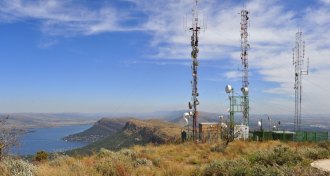 Climate
ClimateCell phone towers monitor African rains
Scientists used cell phone towers to monitor African rains, a method that could track weather in regions without robust meteorological infrastructure.
-
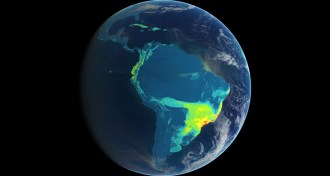 Earth
EarthBird’s-eye views of the globe highlight avian trouble spots
Recent maps reveal trouble spots for the world’s imperiled birds.
By Susan Milius -
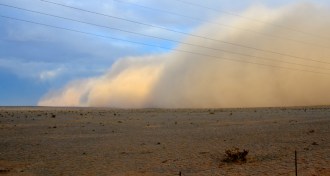 Climate
ClimateWindblown dust may muck up regional climate predictions
Climate simulations don’t accurately portray the behavior of windblown dust, which may result in inaccurate regional forecasts.
By Beth Mole -
 Earth
Earth‘Tambora’ links volcano to the ‘year without a summer’
Author Gillen D’arcy Wood links the volcano to historical changes in art, opium, cholera and more.
By Erin Wayman -
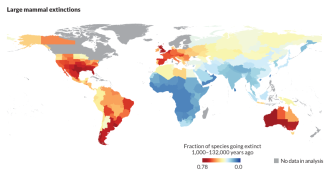 Earth
EarthHumans have long history with causing extinctions
Data suggests major die-offs of large animals during the last Ice Age were linked to people, not climate.
-
 Climate
ClimateAdapting to climate change: Let us consider the ways
Many organisms do have tools to deal with sudden environmental changes, as freelance writer and Science News “Wild Things” blogger Sarah Zielinski reports.
By Eva Emerson -
 Oceans
OceansSaharan dust explains Bahamas’ paradoxical existence
Windswept dust from the Sahara Desert may fertilize bacteria that built the Bahamas.
-
 Climate
ClimateHow species will, or won’t, manage in a warming world
Fast evolution and flexibility, in biology and behavior, may allow some species to adapt to a warming world. Others may need help from humans, or risk dying out.
-
 Environment
EnvironmentDecline in birds linked to common insecticide
In addition to harming bee populations, neonicotinoid insecticides may also be detrimental to bug-eating birds.
By Beth Mole -
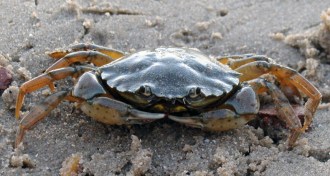 Environment
EnvironmentMicroplastics lodge in crab gills and guts
Crabs can absorb microplastic particles through their gills and by eating polluted mussels.
By Nsikan Akpan -
 Ecosystems
EcosystemsIf you really hate a species, try eating it
Dining on invasive fish such as snakehead and lionfish can reduce their numbers, but we can’t entirely eat our way out this problem.
-
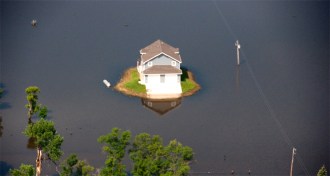 Earth
EarthGravity variations foretell flood risk months in advance
Tiny gravitational tugs from saturated river basins allow NASA satellites to forecast flood risk.